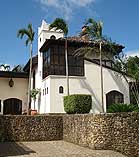Buying Real Estate in Morocco (Guide)
How to buy a property in Morocco? What is the purchase process like? How high are realtors´ and lawyers´ fees in Morocco? What about other property purchase costs?
In this article we will cover an overview of what you can expect when purchasing real estate in Morocco. We cover the costs, taxes, process and some of the legal aspects.
How difficult is the property purchase process in Morocco?
Foreign real estate ownership is allowed in Morocco, though foreigners cannot buy agricultural land. It is best to open a Moroccan bank account that enables foreign currency to be converted to Dirham to be used for the transaction, and for easier repatriation of funds in the future.

It is best to work with a real estate agent, and a lawyer is also helpful in understanding the legalities and procedures, usually done in the local language. The agent, also known as "simsaar", usually does not speak English. The English-speaking lawyer also comes in handy when dealing with the "simsaar".
In Fez (medina), houses do not have titles. Instead, an official scribe "adoul" writes scrolls to document the ownership of the houses. These scrolls can date back up to hundreds of years. It is possible to acquire a title for these houses, once purchased, through a notary.
It is usual to pay a deposit once the purchase price has been agreed on. This is not a guarantee, however, that the seller takes the house off the market, so it is safer to just give a deposit instead of paying the full amount immediately. Sometimes, houses being sold are still occupied. The buyer has to wait for the owner or occupant to move out and turn over the key.
The buying process is otherwise the same as in France and Spain, with a notary acting for both parties. Signatures on the sales deed of the contracting parties should be notarized. The sales deed should then be registered with the relevant registration office. The buyer then applies for the listing of the registered deed to the land registry.
What are the costs like when purchasing a property in Morocco?
Transaction Costs |
||
| Who Pays? | ||
| Registration Duty | 6% | buyer |
| Notary Fees | 0.50% - 1% | buyer |
| Stamp Duty | 1% | buyer |
| Legal Fee | 1% -5% | buyer |
| Land Registry Fee | 1% | buyer |
| Real Estate Agent´s Fee | 3% | buyer |
| Costs paid by buyer | 12.50% - 17% | |
| Costs paid by seller | 0% | |
| ROUNDTRIP TRANSACTION COSTS | 12.50% - 17% | |
| See Footnotes Source: Global Property Guide |
||
Footnotes to Transaction Costs Table
The round trip transaction costs include all costs of buying and then re-selling a property - lawyers´ fees, notaries´ fees, registration fees, taxes, agents´ fees, etc.

 Currency:
Currency:
Morocco uses Moroccan Dirham (MAD) . The exchange rate as of 10 January 2023: US$1 = MAD 10.23. Property value is US$250,000 approximately MAD 2,558,375.
Location:
Marrakesh
 Legal Fees:
Legal Fees:
Due to the complex nature of Moroccan property registration and ownership system, it is highly advisable for the buyer to hire a lawyer to represent him. Legal fees are negotiable, ranging from 1% to 5% of the property value plus 10% VAT.
 Registration Duties:
Registration Duties:
A registration duty of 6% is applicable to acquisition of buildings by individuals or legal entities. A registration duty of 6% is also imposed on acquisition of undeveloped land to build houses and premises.
 Notary Fee
Notary Fee
Notary fees are around 0.50% to 1% of the property value.
 Stamp Duty
Stamp Duty
Stamp duty is around 1% of the property value.
Legal Fee
Due to the complex nature of Moroccan property registration and ownership system, it is highly advisable for the buyer to hire a lawyer to represent him. Legal fees are negotiable, ranging from 1% to 5% of the property Land Registry Fee:
Land Registry Fee:
Aside from the registration, the sales deed is also listed in the land registry. Land registry fee is 1%.

 Real Estate Agent´s Fee:
Real Estate Agent´s Fee:
The real estate agent or simsaar typically charges the buyer 2.5% of purchase price as commission.